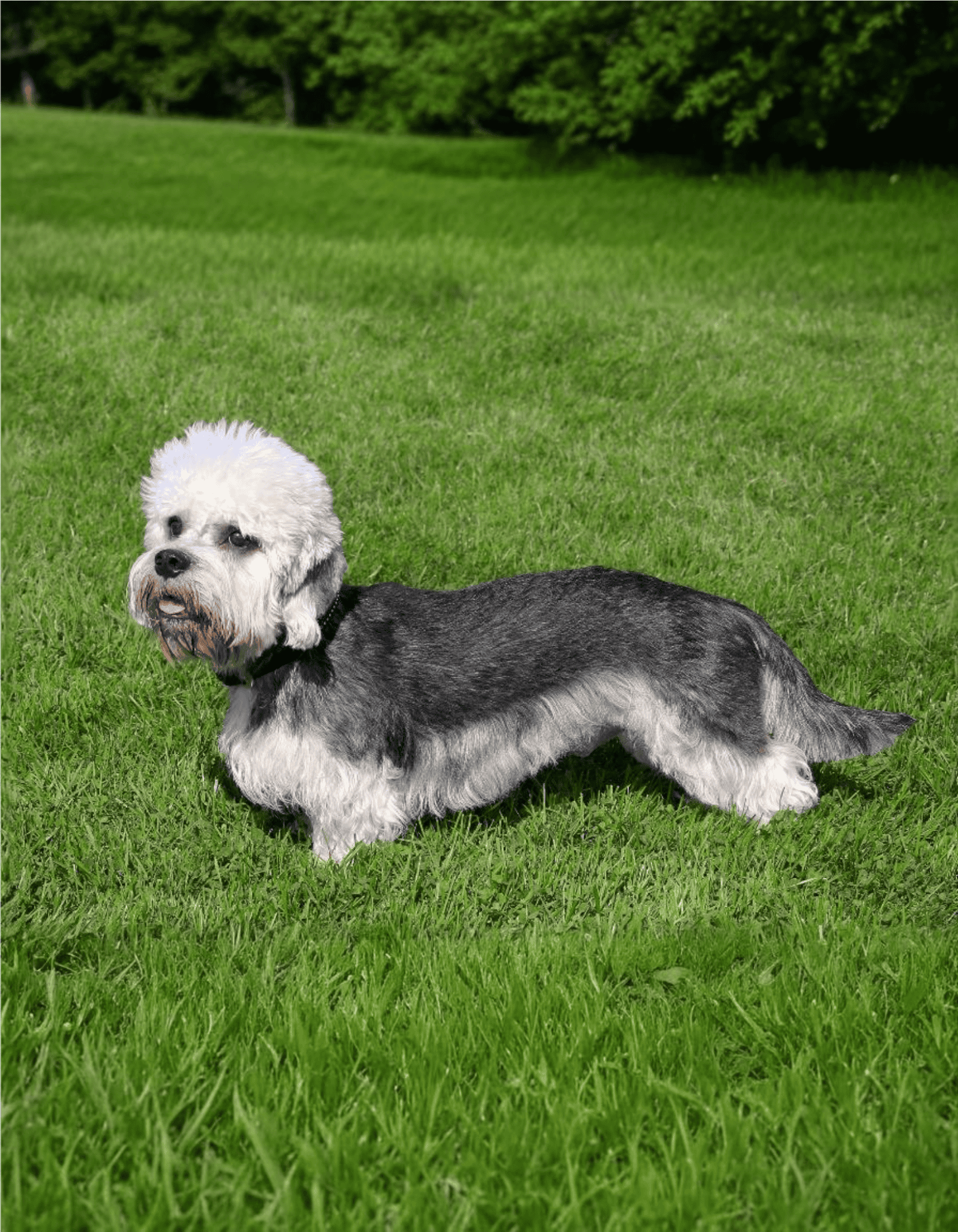
Dandie Dinmont Terrier
Shortcuts
The Dandie Dinmont Terrier is a distinctive and charming breed known for its unique poofy head fur and lively spirit. Perfect for seniors, singles, and families, their affectionate nature and rare history make them standout companions.
The Dandie Dinmont Terrier is a distinctive and charming breed known for its unique poofy head fur and lively spirit. Perfect for seniors, singles, and families, their affectionate nature and rare history make them standout companions.
Breed Overview

Height
8 – 11 inches
Weight
18 – 24 pounds
Lifespan
12 – 15 years
Colors
Mustard and Pepper
Suitable for
Individuals or families living in apartments or houses
Temperament
Loyal, affectionate, independent, intelligent, reserved


Height
8 – 11 inches
Weight
18 – 24 pounds
Lifespan
12 – 15 years
Colors
Mustard and Pepper
Suitable for
Individuals or families living in apartments or houses
Temperament
Loyal, affectionate, independent, intelligent, reserved

The Dandie Dinmont Terrier is a small breed known for its unique appearance and friendly demeanor. It is versatile and adapts well to various living conditions. This breed thrives on companionship and enjoys participating in family activities.
Characteristics
Energy

Health

Sociability

Trainability

Lifespan


Enjoying this read?
We publish this content for free to generate interest in our Premium members' area. By subscribing, you can ask the writer any questions related to pet care and this article, get access to 100+ Premium Pet Care Guides and go Ad-Free with DogFix Premium for $2.99.
Health Conditions
The Dandie Dinmont Terrier is generally a robust breed with few health concerns. Unlike many breeds, cases of lymphoma are rare in Dandies. Routine genetic testing by reputable breeders helps minimize inherited health issues.
Regular vet checkups and parasite control visits are essential to maintaining their health. It’s also important to check their ears frequently for signs of infection.
Minor Conditions
- Allergies
Serious Conditions
- Cushing’s syndrome
- Elbow and hip dysplasia
- Back problems
- Eye issues
- Hypothyroidism
- Obesity
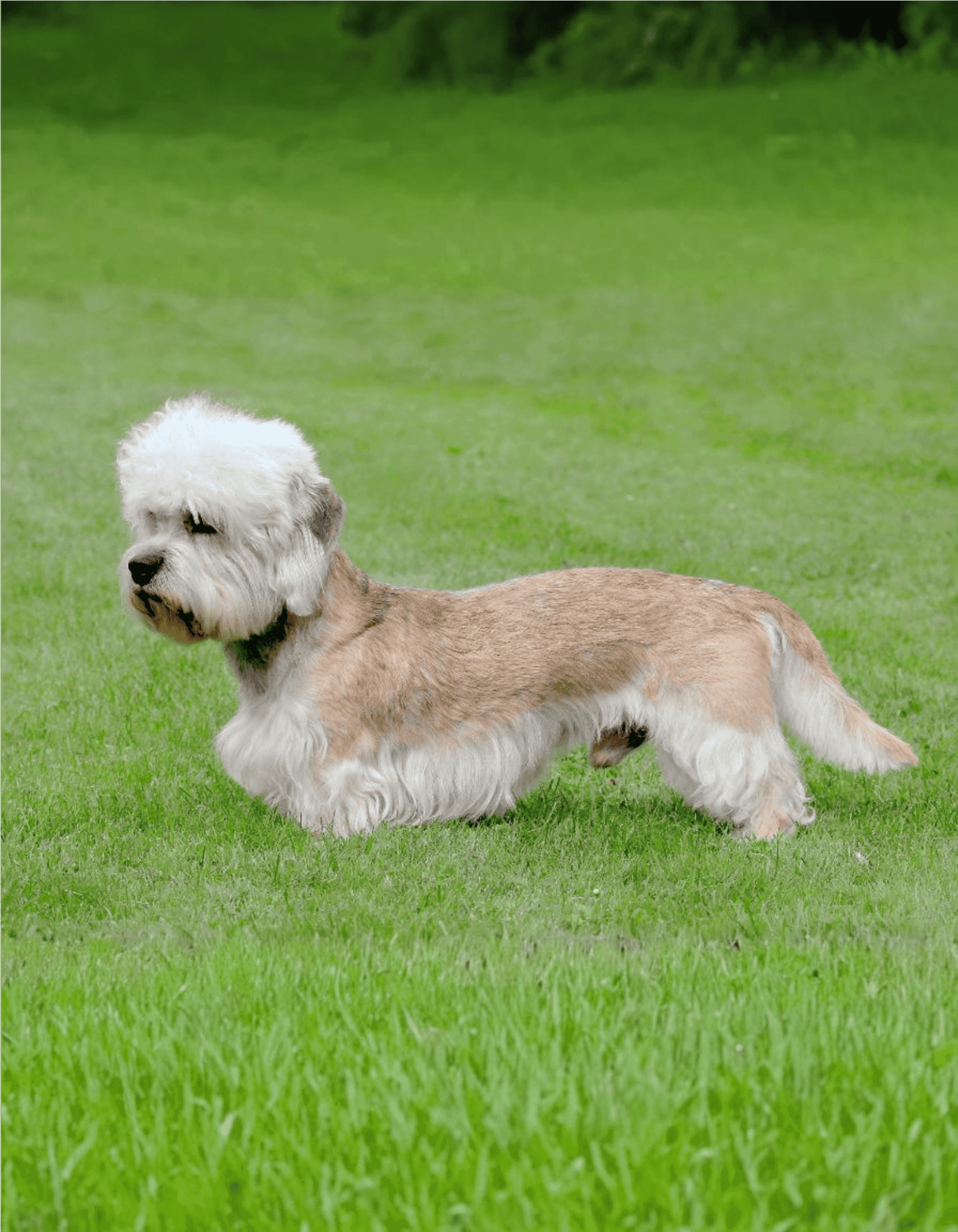
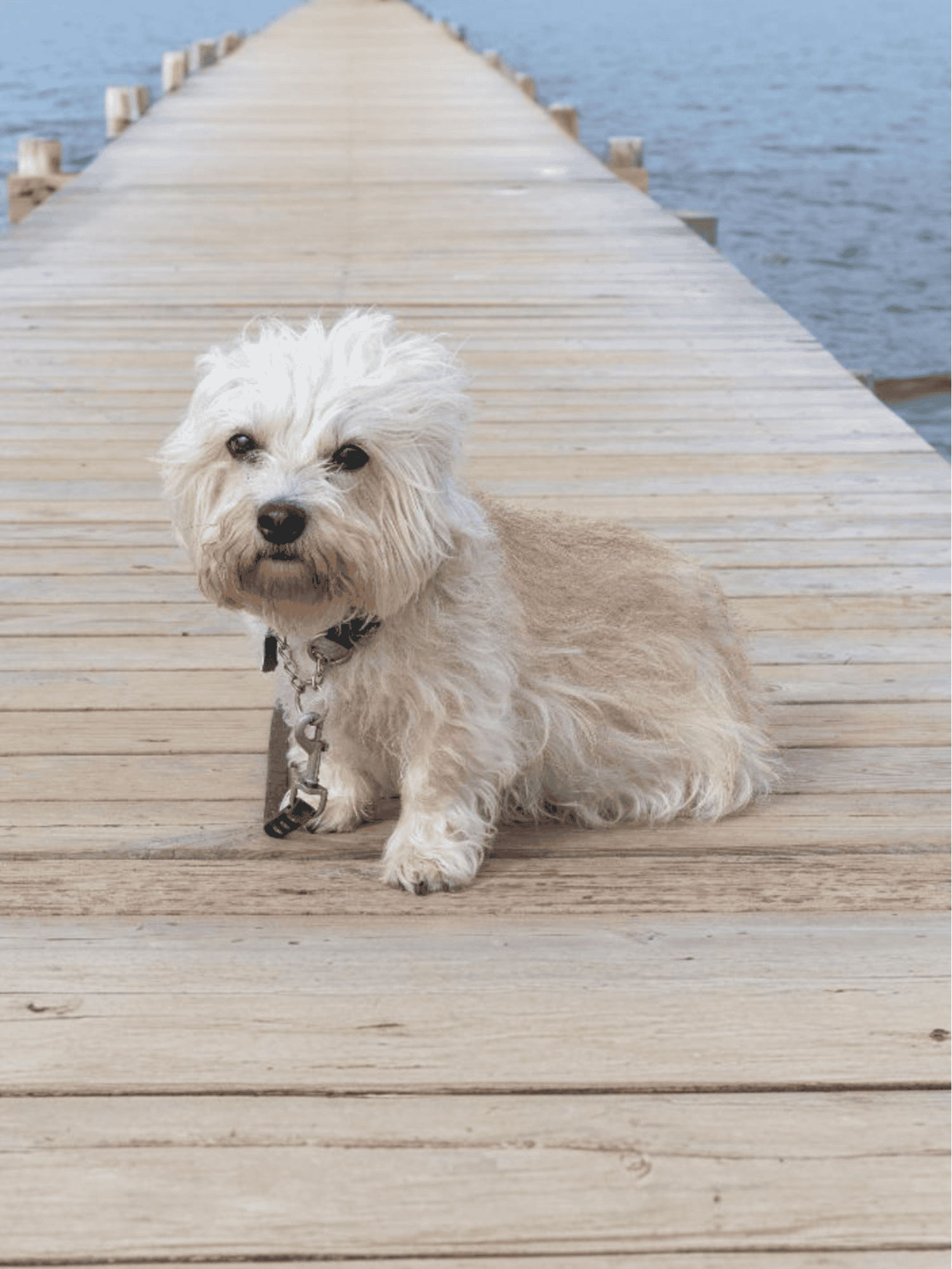
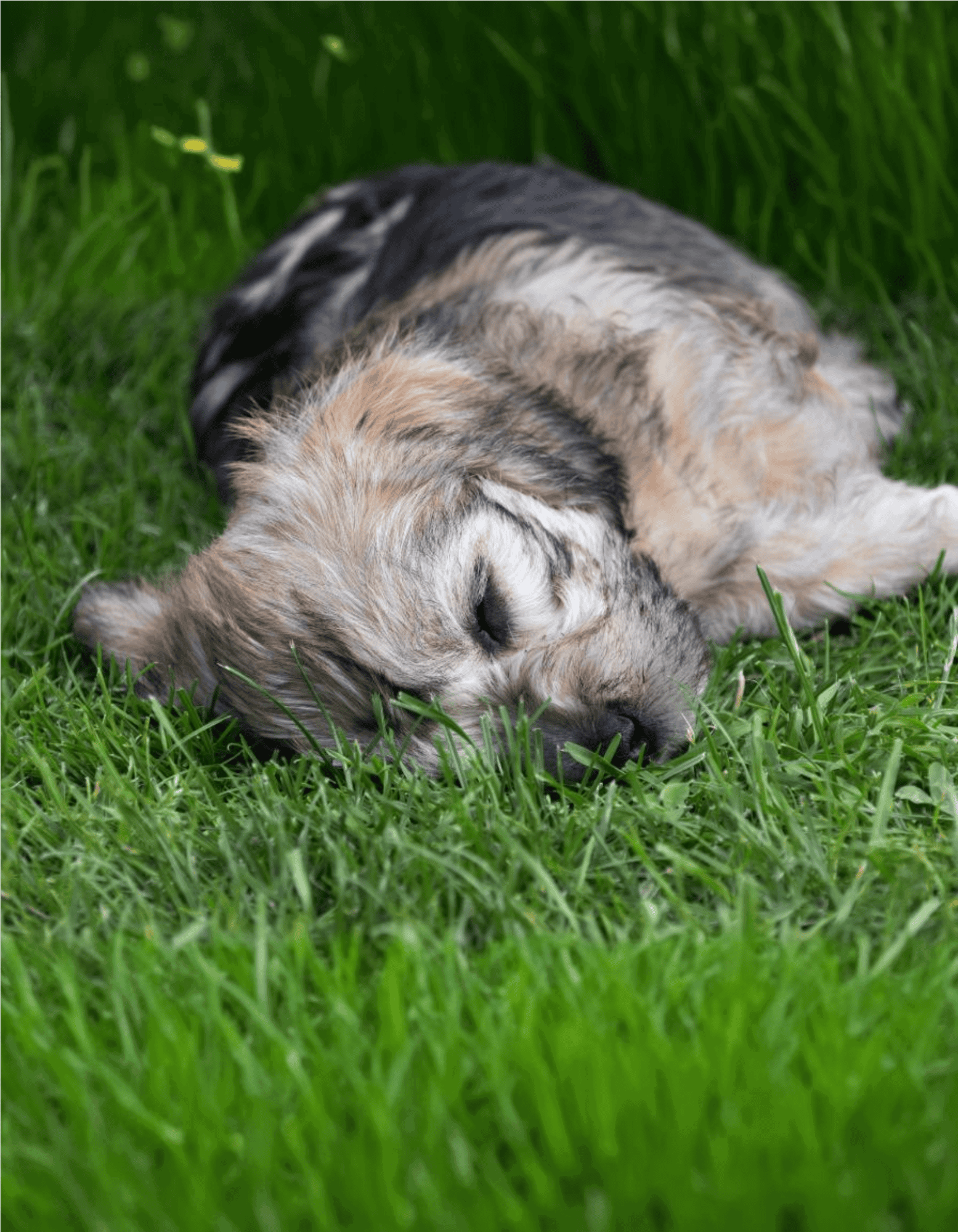
Dandie Dinmont Terrier Puppies
Dandie Dinmont Terrier puppies are known for their loving and intelligent nature, making them highly affectionate companions. They quickly bond with families and are relatively straightforward to train with consistent, positive reinforcement. However, their rarity means fewer than 300 are registered annually, making them unique yet expensive pets.
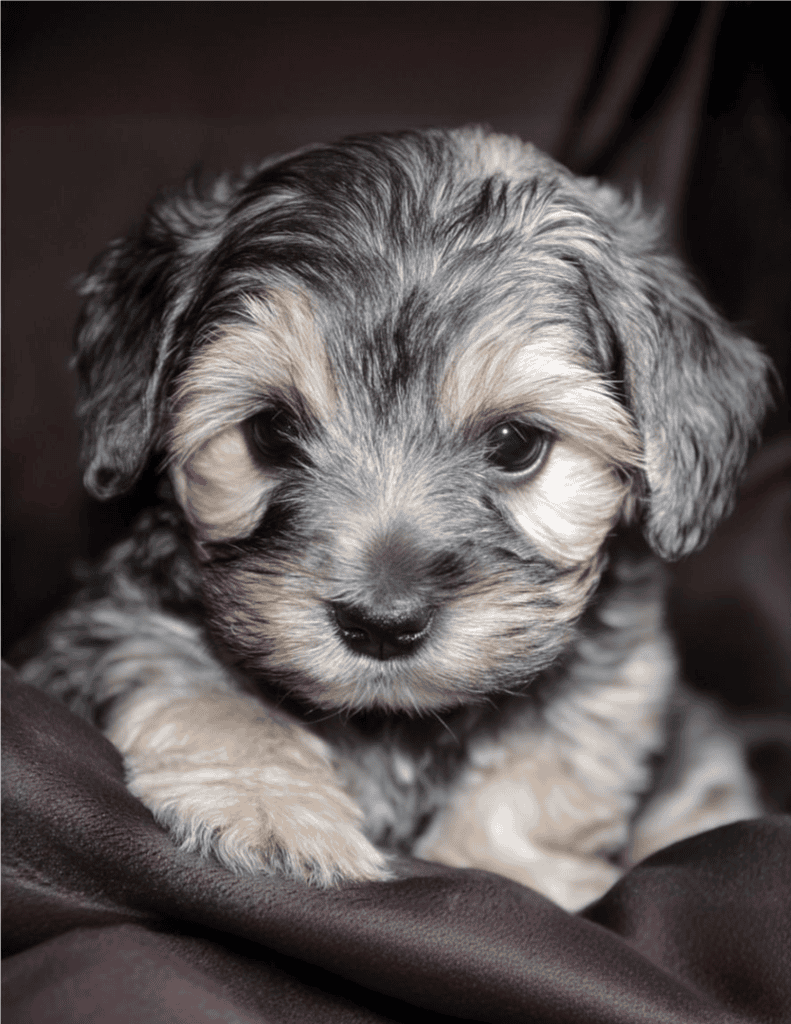
Early socialization is critical for Dandie Dinmont Terriers to become well-rounded dogs. They should be exposed to environments, people, and animals early on. Despite their friendly nature, their instinct to chase small animals requires careful supervision, highlighting the importance of their training and socialization.
Temperament & Intelligence Of The Dandie Dinmont Terrier
The Dandie Dinmont Terrier is a fearless and bold dog breed, perfect for those seeking an effective guard dog. Despite its tiny stature, it doesn’t hesitate to confront challenges. It’s known for its strong loyalty, quickly forming deep bonds with its family and showcasing a loving nature. Intelligence and quick learning capability make it easily trainable with the proper guidance.
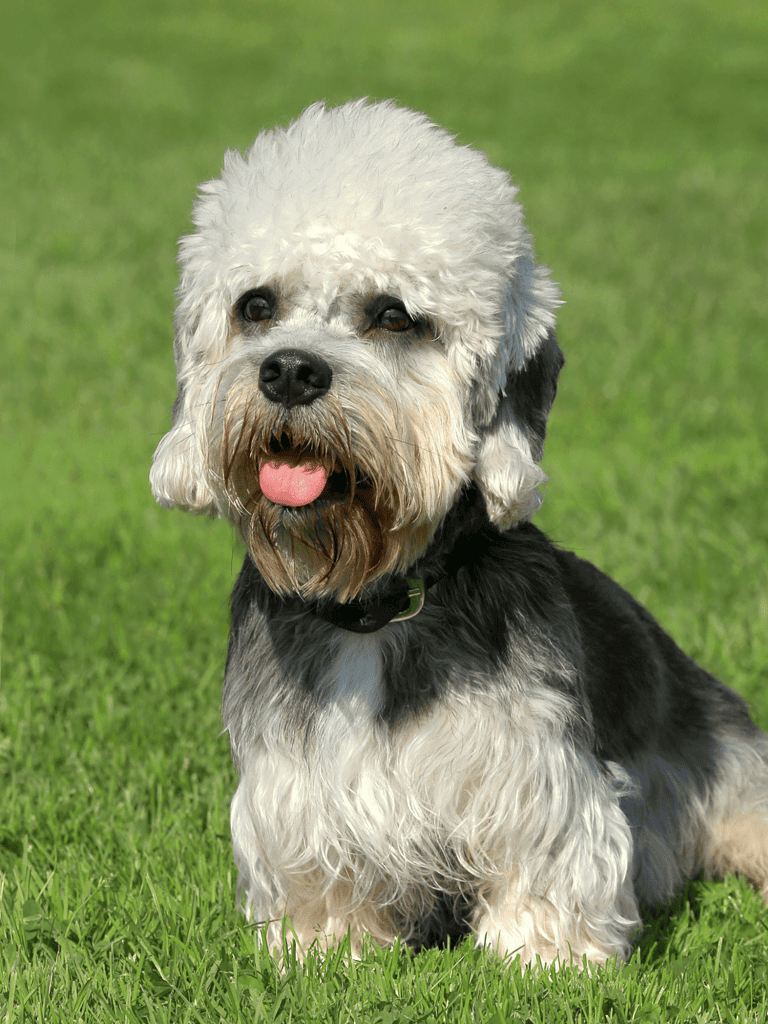
However, this breed values its independence, which can lead to separation anxiety during prolonged absences. Not suitable for those desiring a quiet pet, its alertness leads to frequent barking at perceived threats. Early training is crucial to establishing leadership and managing its independent streak, preventing unwanted behaviors, and ensuring it knows its place in the family hierarchy.
Are These Dogs Good For Families?
The Dandie Dinmont Terrier is a loving canine companion. They thrive in homes with older children, teens, and adults and tend to form strong family bonds, offering loyalty and affection. However, this breed may not be the best choice for families with very young children, as curious toddlers can sometimes provoke a more aggressive response from this otherwise gentle dog.
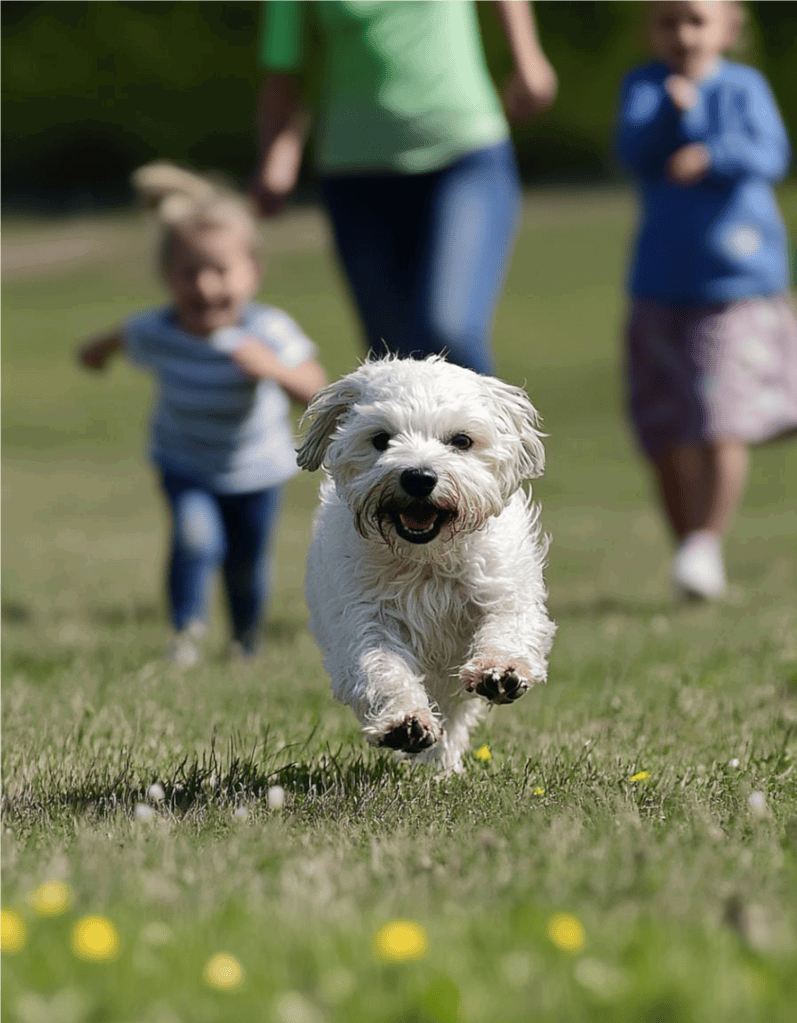
The Dandie Dinmont Terrier’s charming personality shines in a relaxed home environment. They enjoy family activities and are playful with older kids and adults. Regarding suitability, this breed is not ideal for young children but is great for older children and adults. Their activity level is moderate.
Does This Breed Get Along With Other Pets?
The Dandie Dinmont Terrier tends to do best as the only pet in the household. This breed, especially the males, can display small-dog syndrome, which may lead to aggression towards other dogs in the same home. Due to their background as hunters of small game, Dandie Dinmont Terriers may have a strong instinct to chase cats, rabbits, or other small animals.
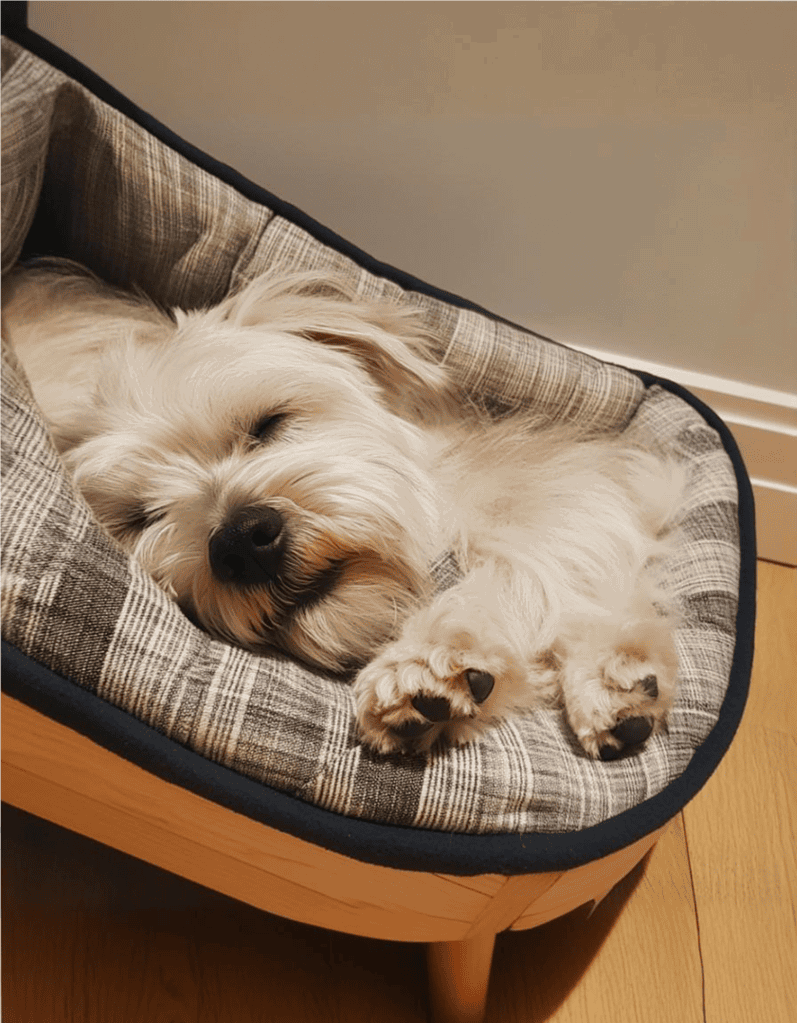
This trait makes them less suitable for homes with other pets. Owners should be cautious and consider professional training and early socialization when introducing a Dandie Dinmont Terrier into a household with multiple pets.
Food & Diet Requirements
The Dandie Dinmont Terrier requires a nutritious and balanced diet. Feeding them ¾ to 1 ½ cups of high-quality dry kibble daily is recommended. Split this quantity into two meals to help manage their energy levels and digestion.
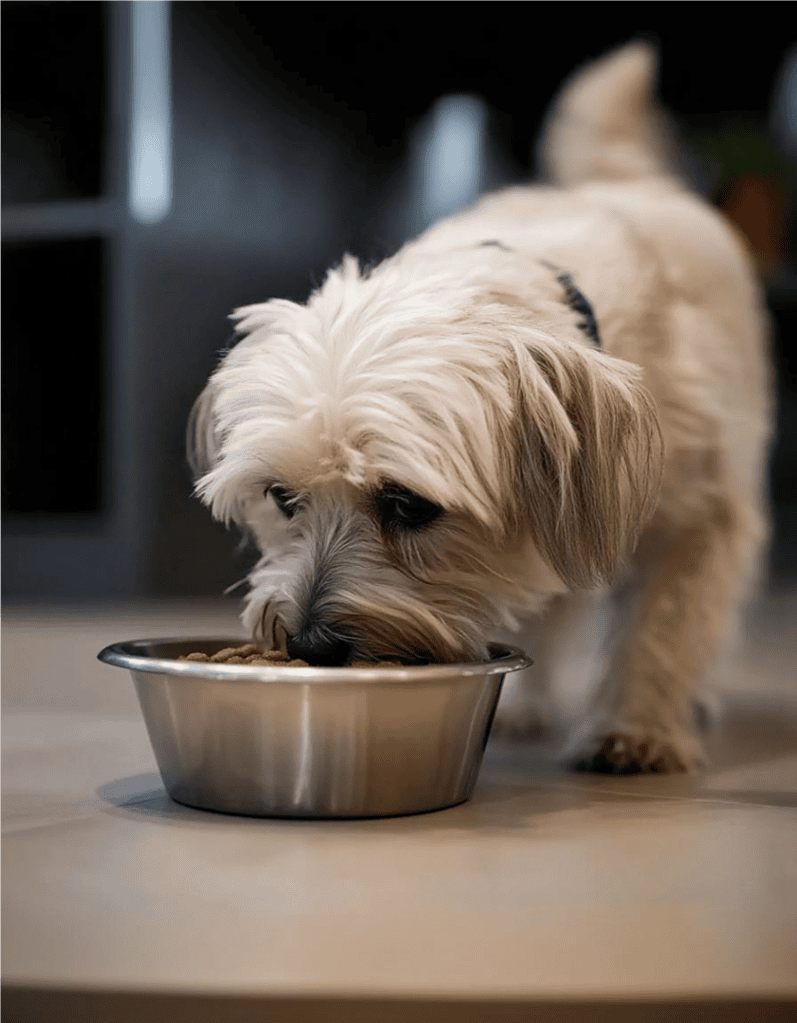
A diet rich in proteins and fats is essential to maintain their health. Look for kibble that lists meat as the first ingredient, and avoid fillers. Regularly consult your veterinarian to adjust the diet based on age, weight, and health conditions. Always ensure access to fresh water, and avoid overfeeding to maintain a healthy weight.
Exercise
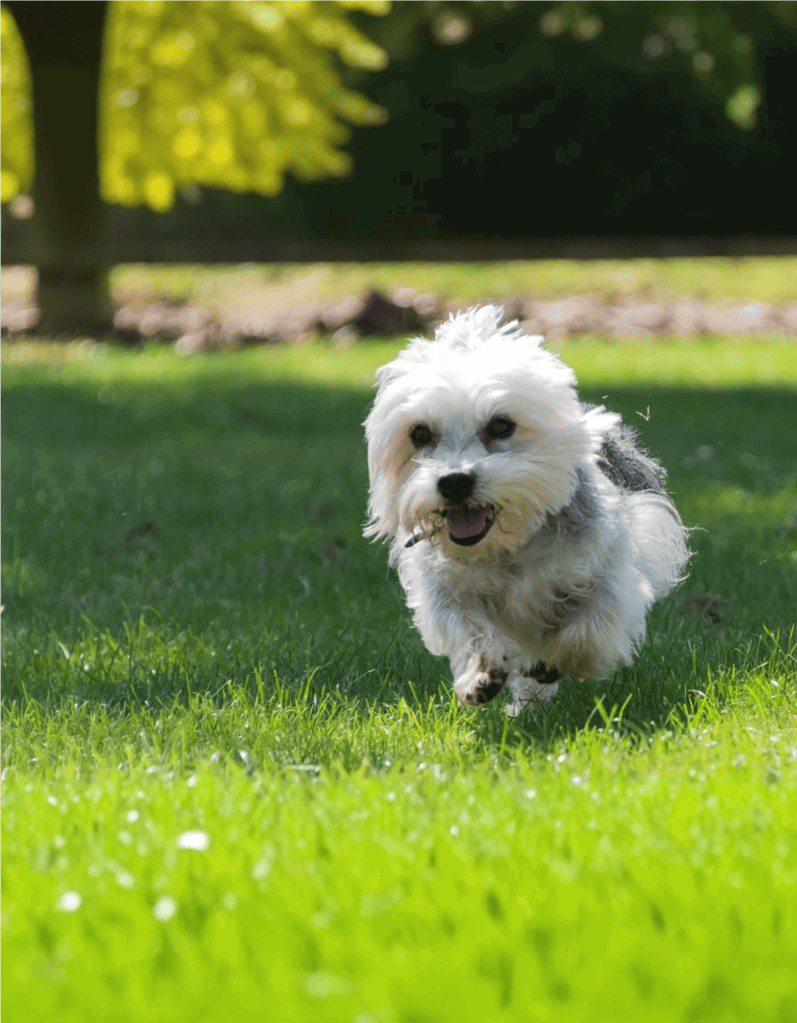
The Dandie Dinmont Terrier needs at least an hour of physical activity daily to maintain their physical and mental well-being. Suitable activities include long walks or playing in a secure yard. Due to their short legs, they may have difficulty with jumping or climbing stairs, so it’s important to minimize these activities to prevent potential back issues. Regular but gentle exercise is crucial for this breed.
Training
Bringing a Dandie Dinmont Terrier home means starting training immediately. These intelligent dogs are eager to learn everything from basic commands to complex tricks and need consistent training to secure their role in the home.
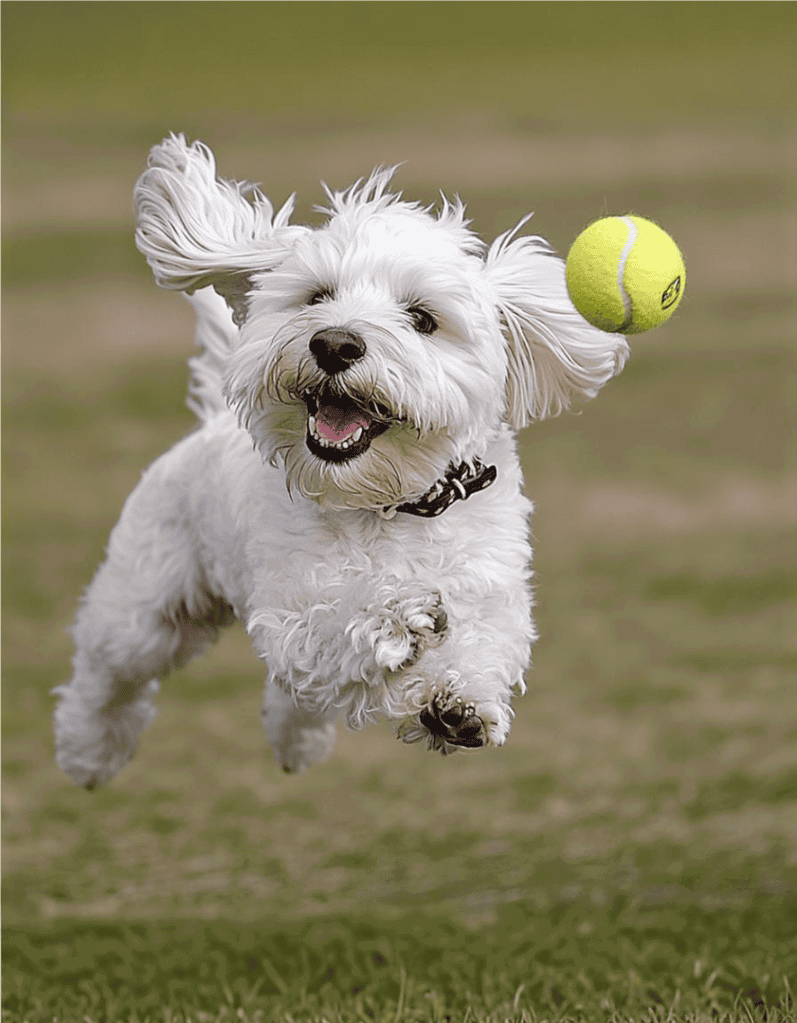
Positive reinforcement methods work best with Dandie Dinmont Terriers, such as using praise and head pats as rewards. Establish clear boundaries early on, maintaining consistency and patience to prevent behavioral issues while keeping training sessions short and engaging.
Grooming
Dandie Dinmont Terriers require regular grooming to maintain their coats’ health. Brush their coats two to three times a week to remove dead hair and prevent matting. This routine benefits their double-layered coats, maintaining their texture and appearance. The thick fur on their heads should be trimmed regularly to prevent vision obstruction.
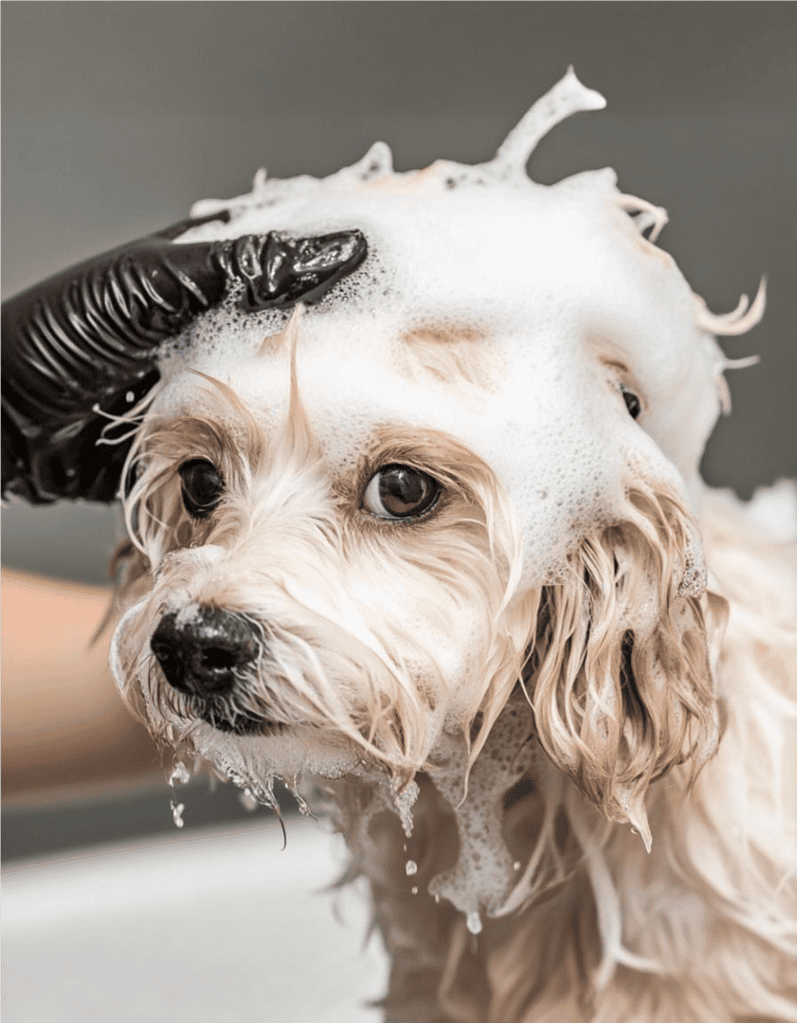
Regular nail trimming is essential for these terriers to avoid discomfort and health issues. Additionally, daily teeth brushing prevents dental problems, supports overall oral health, and prevents bad breath and gum disease.
Male Vs. Female
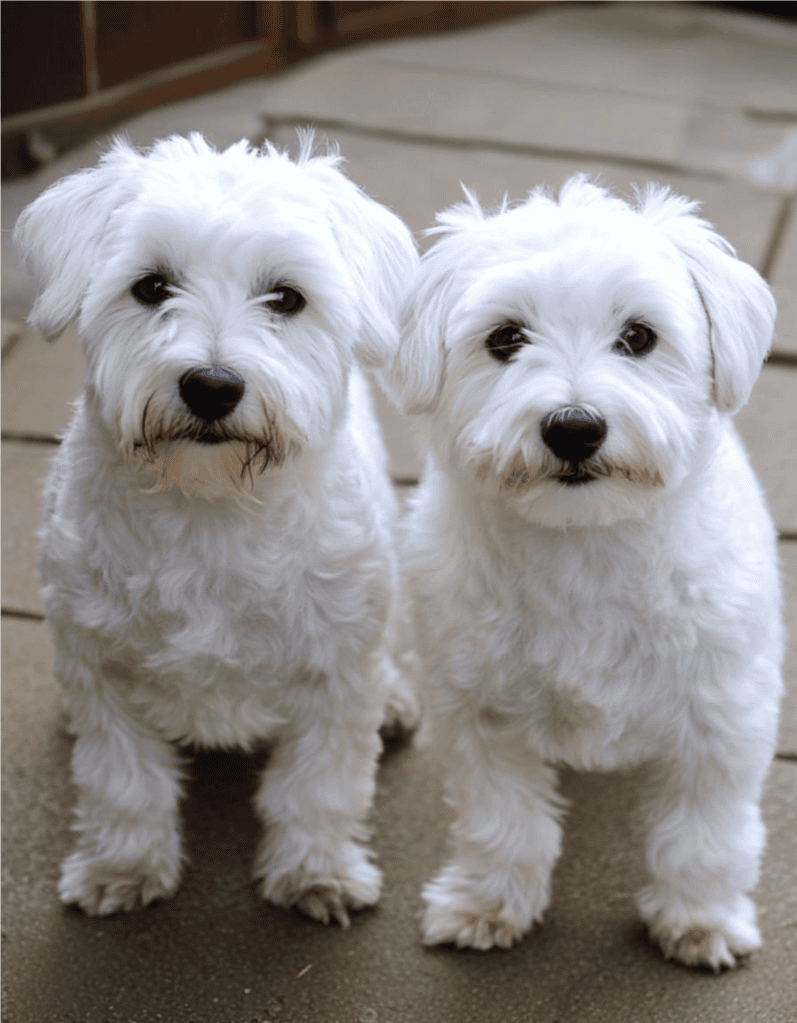
Male Dandie Dinmont Terriers are usually larger than females. Males may display more aggression towards other dogs, especially other males. Both genders respond well to consistent, positive reinforcement training. Females may be more reserved, while males are often more outgoing. Please note that these are general tendencies, and individual dogs may vary.
Fact #1: They Have a Literary Name
The Dandie Dinmont Terrier is named after a character in Sir Walter Scott’s 1815 novel Guy Mannering. The character is known for his distinct “pepper” and “mustard”-colored terriers. This naming wasn’t random; it was inspired by James Davidson, a real-life breeder with terriers named Old Mustard, Young Pepper, and others, often called the “immortal six” by fans.
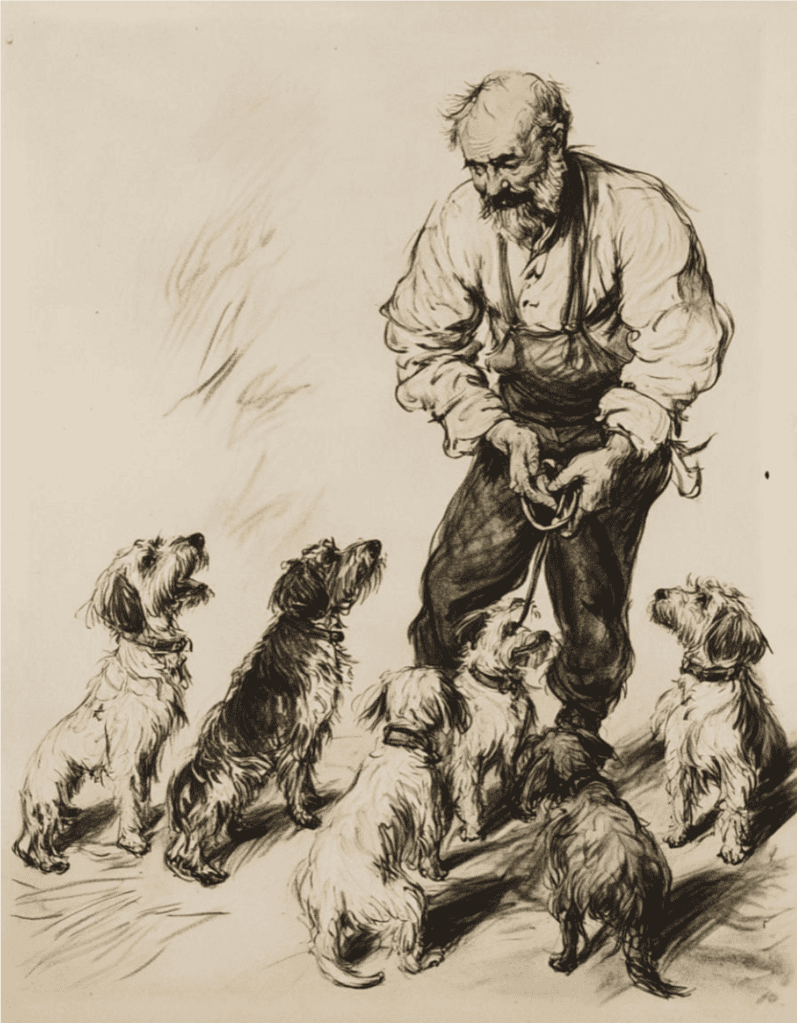
Interestingly, every Dandie Dinmont Terrier can trace its ancestry to a dog named Old Ginger, whose father was Davidson’s Old Pepper. This connection adds a rich, literary heritage to the breed. The name reflects its deep Scottish roots and cultural significance. It’s unusual for a dog breed to have such a direct connection to literature, setting the Dandie Dinmont Terrier apart.
Fact #2: They Were Bred to Hunt Otters and Badgers
The Dandie Dinmont Terrier first appeared around 1700 in the Cheviot Hills, on the border between England and Scotland. Hunters prized these terriers for their prowess in hunting otters and badgers. Characterized by their unique appearance and strong hunting instincts, their short legs made them adept at navigating through burrows.
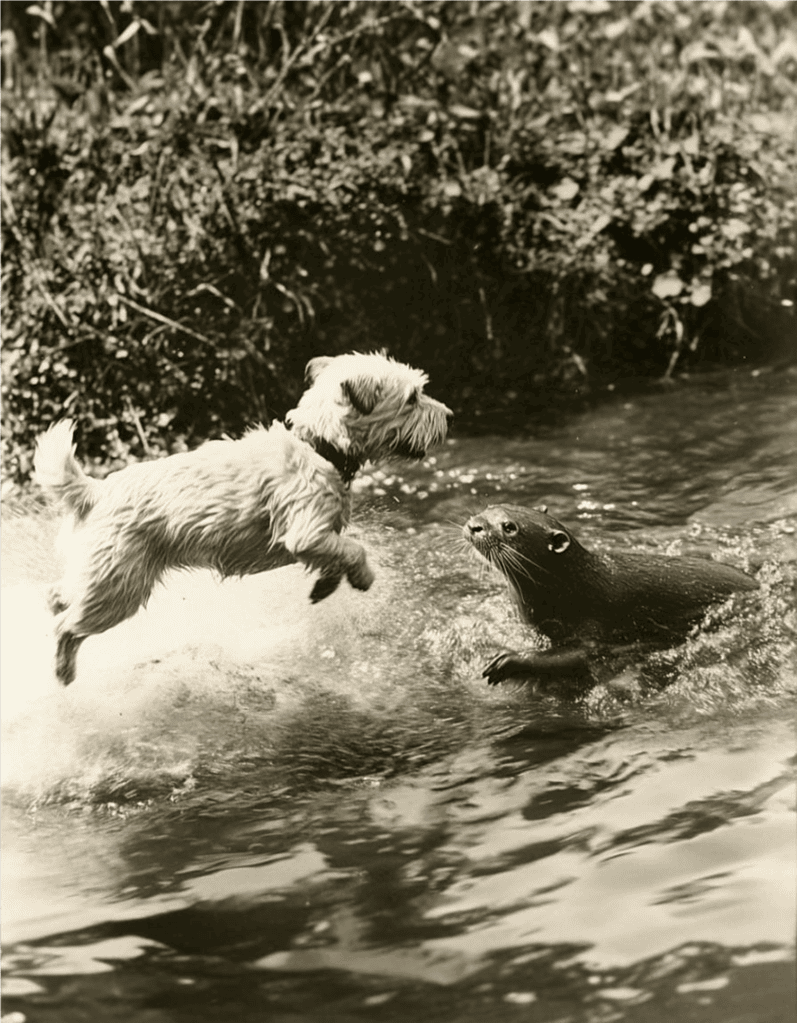
Their compact build and powerful jaws made them particularly effective against such prey. With a strong hunting heritage, the Dandie Dinmont Terrier inherits notable abilities and traits, enhancing their performance in any given task.
Fact #3: They’re Not Entirely Hypoallergenic
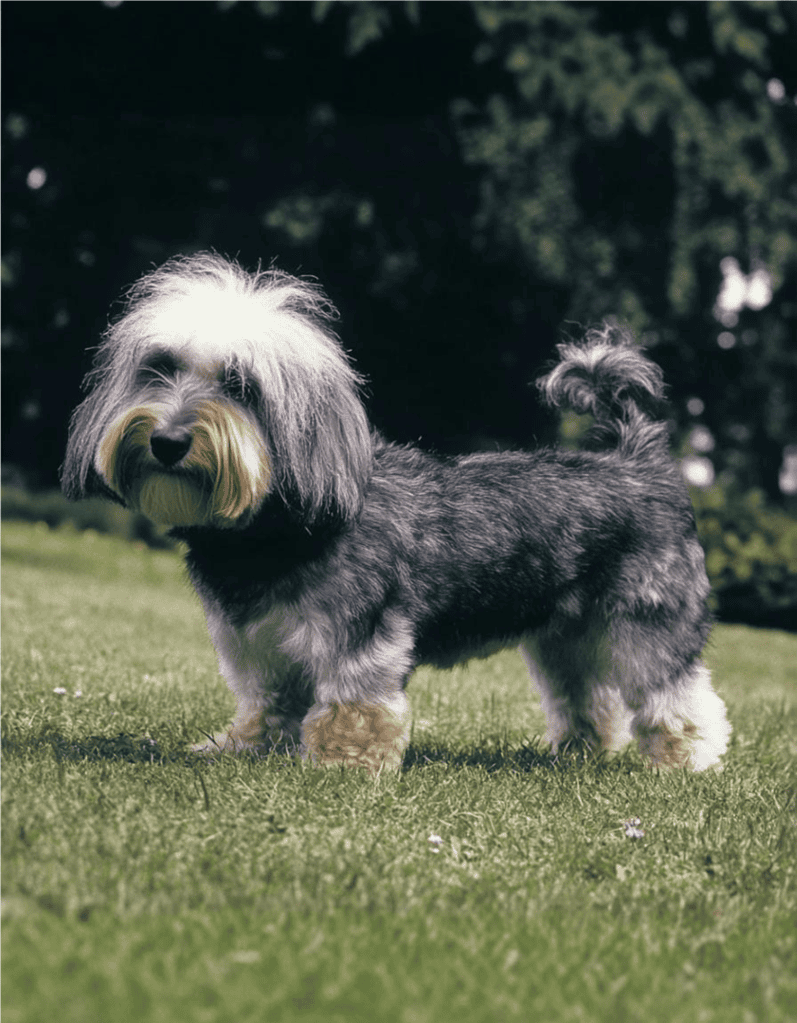
Despite often being referred to as hypoallergenic, Dandie Dinmont Terriers do not entirely avoid causing allergic reactions. While they shed less than many other dog breeds, no dog breed is entirely hypoallergenic. The reduced shedding of the Dandie Dinmont Terrier might cause fewer symptoms in people with pet allergies. For those with allergies, regular grooming and cleaning can help manage reactions.
Frequently Asked Questions
What is the average weight range for a Dandie Dinmont Terrier?
Dandie Dinmont Terriers typically weigh between 18 to 24 pounds.
What personality traits are typically seen in Dandie Dinmont Terriers?
They are known for their independent and friendly nature. These terriers also exhibit a high level of intelligence and loyalty.
How long do Dandie Dinmont Terriers generally live?
The average lifespan of a Dandie Dinmont Terrier ranges from 12 to 15 years.
What are the standard size dimensions of a Dandie Dinmont Terrier?
Dandie Dinmont Terriers usually stand about 8 to 11 inches tall at the shoulder.
What variety of colors do Dandie Dinmont Terriers come in?
They come in two primary colors: pepper (a mix of black and gray) and mustard (a range of browns).
How often do Dandie Dinmont Terriers require grooming?
Dandie Dinmont Terriers require grooming at least once a week to keep their coat healthy and tangle-free.

Didn’t find what you need? Use the search!
Search our database of over hundreds of posts with up-to-date information from our experts and veterinarians.

